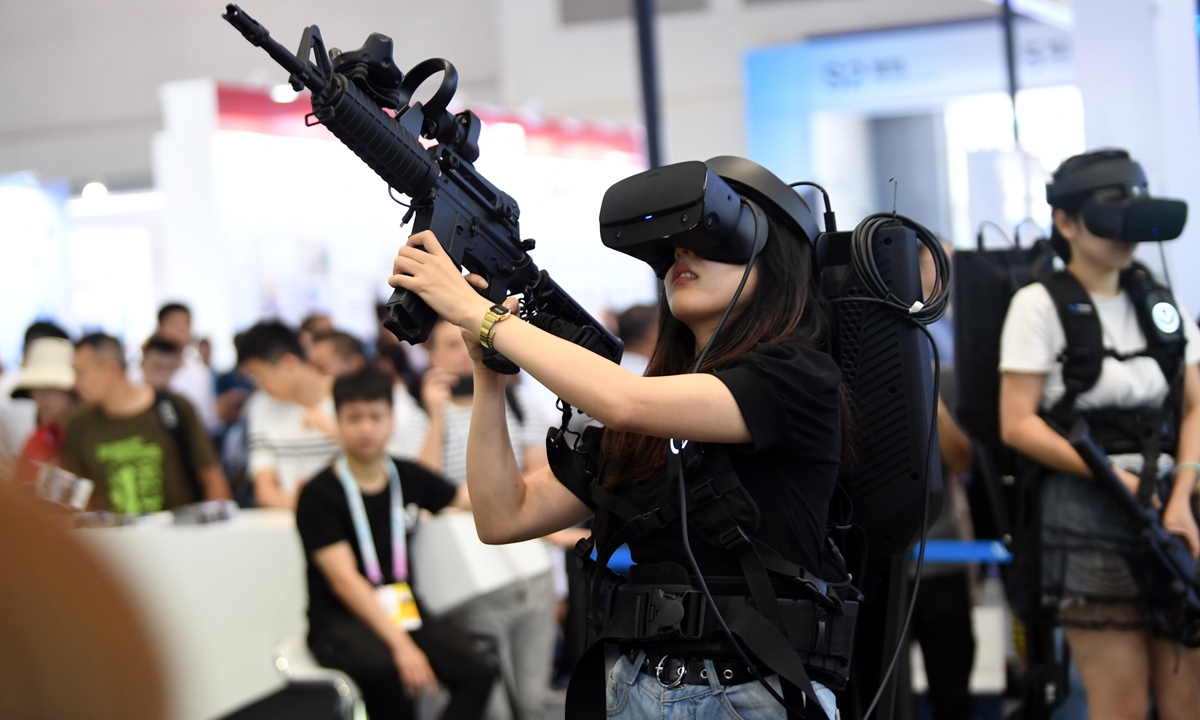Expert with Venice Film Festival speaks highly of VR progress in China
Source: Xinhua Published: 2020/9/10 18:08:40

A visitor plays a VR game in Southwest China's Chongqing Municipality in August 2019. Photo: IC
An expert working with the Virtual Reality (VR) section of the Venice Film Festival has commended the progress made in the VR industry in China.
"We can see every year that the sophistication of the Chinese artistry in creative and artistic VR is growing to a very interesting level," said Michel Reilhac, co-head of cinema and VR studies for Biennale College, a project dedicated to the education of young people in the artistic fields, in an interview with the Xinhua News Agency.
"The style of the storytelling, the design of the pieces and the themes are really original and totally appropriate for an international audience," said Reilhac, commenting on the several Chinese VR films presented at the VR expanded section of the 77th edition of the Venice Film Festival.
Reilhac highlighted the collaboration with the Chinese city of Hangzhou, one of 15 cities around the world where the VR section is being shown in parallel with the main venue in Venice.
Thanks to Eddie Lou, an independent producer and founder of the Sandbox Immersive Festival in Hangzhou, Reilhac was able to quickly have a new VR lounge join the network.
"When I knew that we would create an international network of cultural institutes each hosting a VR lounge with headsets to provide access for locals to the VR section, I immediately called Eddie asking for his help," Reilhac said.
Four weeks ago, the space was set up at the Hangzhou-based China Academy of Art.
"I know that they have even increased the number of headsets because it has become very popular. We were extremely honored and happy that Venice VR Expanded could be represented in this way in China and I'm going to go there in October for the Sandbox Festival," Reilhac said.
Talking about the international co-productions with China, Reilhac noted that it is starting to happen on a broad scale, with companies from different countries collaborating with Chinese partners for financing and distribution.
Reilhac said the market in China is so big that most Chinese companies making hardware and software or the people who produce content did not pay much attention to cooperation with foreigners. But things are changing now.
"Now I see a big change and there is a bigger interest in being part of an international co-production," he said.
Due to the pandemic, public places such as museums and cultural centers have had to resort to VR practices to offset the impact of limited access offered to visitors. And it is similar in the education and training industries.
"In China, there are certain manufacturers who are already working on very small headsets similar to glasses and that will be the future," said Reilhac.
Newspaper headline: New worlds
Posted in: CELEBRITY,CULTURE & LEISURE